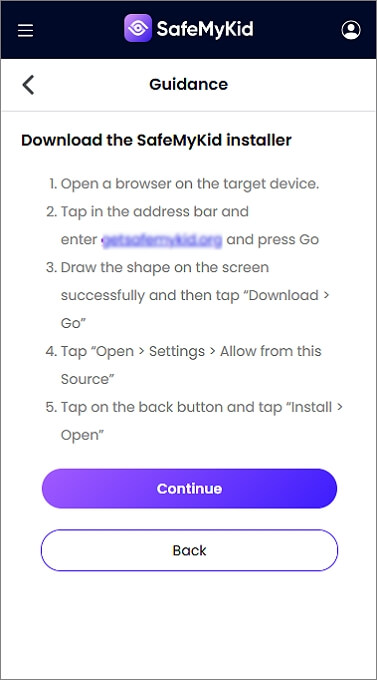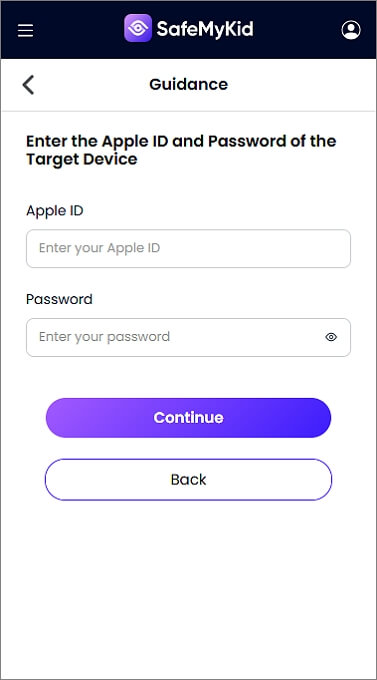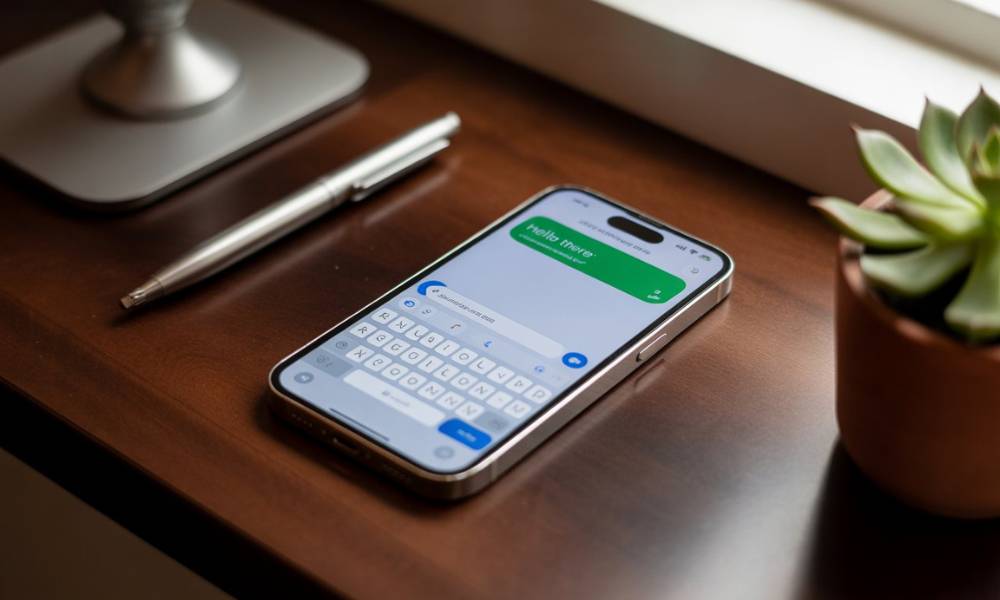7 Coping Tips: How to Deal with Husband's Infidelity

Discovering that your husband has been unfaithful can turn your entire world upside down. You're not alone in your pain, and there are ways to take control again.
In this article, we'll guide you through how to deal with your husband's infidelity, explore the emotional aftermath, and provide 7 actionable coping strategies to start healing.

What Is Infidelity in a Marriage?
Infidelity isn't just about physical cheating; it can also include emotional affairs, online flirtations, and hidden communications. Each form breaks trust and shakes the foundation of a committed relationship.
Understanding what counts as cheating helps clarify boundaries. Emotional connections with someone outside the marriage, secret messaging, or deceptive behavior online may also be considered betrayals.
How to Monitor and Catch an Infidel Husband: Use SafeMyKid

Before you can begin to heal or rebuild, many women need clarity. If your husband continues to deny infidelity or you need proof for peace of mind, a smart and discreet solution can help.
SafeMyKid is a trusted parental control and monitoring app that has become a go-to solution for wives who suspect betrayal. It works silently and effectively to give you the information you need without confrontation.
Why Use SafeMyKid to Monitor Your Husband's Infidelity
If you're feeling unsure about how to deal with an infidel husband and need discreet clarity, SafeMyKid offers powerful, real-time monitoring tools.
Its features are increasingly being used by spouses seeking truth in emotionally complex situations. The app allows you to gather undeniable facts quietly and safely.
Powerful features that help you monitor and understand your husband's behavior include:
- WhatsApp, Facebook & Instagram Monitoring: Gain full access to social media chats, even deleted messages. You'll see full message threads, exchanged media, timestamps, and contact details across multiple messaging platforms.
- Call & SMS Log Access: View every call made or received, including unsaved numbers and frequent contacts. SMS messages, even deleted ones, can be retrieved to check for hidden conversations.
- Live GPS Tracking & Location History: Track your husband's movements in real time and view previously visited locations; this is ideal if his stories don't match his actual whereabouts.
- Stealth Mode Operation: SafeMyKid runs invisibly, making it impossible for him to know it's installed. This prevents app deletions or defensive reactions.
- App Activity Monitoring: Know which apps he installs, opens, or uses frequently. Repeated use of dating or secret messaging apps (like Tinder, Telegram, or Signal) can indicate unfaithfulness.
- Browser History & Bookmarks Access: See what he searches online, including dating sites, hotel bookings, or advice on hiding infidelity, even in incognito mode.
- Media Gallery Review: Browse through all saved and received photos, videos, or screenshots. If he's exchanging intimate content or storing secret images, you'll know.
- Keylogger Feature: Capture every word he types, including messages, notes, search queries, and even deleted drafts, giving you insight into his intentions and private thoughts.
- Wi-Fi Connection Log: See which networks his phone has connected to. This can help confirm if he visited certain homes, offices, or hotels.
- Contact List Access: Check all saved contacts, including hidden names, emails, or suspiciously labeled numbers (e.g., "Electrician" or "Old Friend").
By using SafeMyKid discreetly, you gather the evidence needed to make decisions from a place of truth, not speculation. Whether you're choosing to confront him, seek counseling, or prepare for separation, having clear digital proof helps you act with confidence.
How to Use SafeMyKid to Monitor Your Husband's Infidelity
Whether he's hiding messages, visiting questionable places, or secretly chatting with someone else, SafeMyKid helps you gather evidence. Here's how to use it depending on your device type.
How to Monitor Your Husband's Infidelity on Android
Step 1. Sign up on SafeMyKid's Website and Create Your Account
Go to the official SafeMyKid site and register using a valid email address.

Step 2. Install The SafeMyKid App on Your Husband's Android Device
Access the device briefly and install the app. The app runs in invisible mode and won't be detected in his app drawer.

Step 3. Monitor Your Husband's Infidelity on Android
You'll now be able to monitor his WhatsApp, call logs, locations, app usage, and even deleted texts, which will help you spot signs of cheating with concrete data.

How to Monitor Your Husband's Infidelity on iPhone
Step 1. Create an Account
Begin by signing up for a SafeMyKid account on their website.

Step 2. Input iCloud Login Credentials
Instead of needing physical access, simply enter your husband's iCloud credentials into the SafeMyKid dashboard. Ensure iCloud backup is enabled on his iPhone.

Step 3. Monitor Your Husband's Infidelity on iPhone
Once connected, the platform will begin syncing messages, app activity, GPS data, and media files directly from his iCloud. You'll be able to detect hidden patterns and dishonest behavior.

SafeMyKid equips you with clarity, privacy, and peace of mind.
Why Do Husbands Cheat?
There isn't a single reason why husbands are unfaithful. Understanding the cause doesn't excuse the behavior, but it can help guide how to deal with an infidel husband. Common reasons include:
- Emotional dissatisfaction: Feeling unappreciated or emotionally disconnected in the marriage.
- Lack of intimacy: Physical and emotional needs are not being met.
- Low self-esteem: Seeking validation or attention outside the relationship.
- Opportunity or temptation: Situations where boundaries are weak or absent.
- Poor impulse control: Acting without considering the long-term consequences.
- Personal dissatisfaction or boredom: Feeling stuck or unfulfilled in life or the relationship.
Recognizing the root cause can help you decide what healing or boundaries are necessary moving forward.
Emotional Impact of Your Husband's Infidelity on You

The emotional aftermath of betrayal can feel unbearable and deeply destabilizing. When dealing with an infidel husband, it's common to experience a range of intense emotions that may include:
- Anxiety and depression
- Rage, shame, or disbelief
- Obsessive thoughts and lack of focus
- Loss of self-esteem and identity
These emotional waves can come unexpectedly and linger. You might question your worth or feel emotionally paralyzed.
It's completely normal to feel like your world has shattered, but healing is possible, and knowing how to deal with an infidel husband begins with tending to your own emotional needs first.
7 Tips on How to Deal with Husband's Infidelity
Dealing with betrayal isn't just about catching a cheater; it's about reclaiming yourself, setting boundaries, and choosing your future from a place of strength. Below are 7 key steps that guide you through how to deal with husband's infidelity effectively.
1. Allow Yourself to Feel Everything

Don't suppress your emotions or pretend everything is fine. Let yourself cry, scream, write, or even sit in silence. The pain you're experiencing is real and valid.
Ignoring it will only bottle it up, causing deeper wounds over time. Grieving is a natural and necessary part of healing after betrayal. Give yourself permission to process every wave of emotion without guilt or shame.
2. Avoid Rash Decisions

As tempting as it may be to immediately walk out, make big declarations, or confront the other person involved, resist the urge to make impulsive choices while emotions are still raw.
What feels right in a moment of anger or pain may not reflect your long-term needs. Give yourself the space and time to think things through carefully. Journaling or talking to a neutral party before acting can offer clarity.
3. Seek Individual Counseling

Dealing with a partner's infidelity is traumatic and can disrupt your sense of reality and self-worth. Speaking with a licensed therapist allows you to unpack those complex emotions in a private, supportive setting.
Therapy can help you understand your triggers, manage anxiety, rebuild your confidence, and develop healthier coping mechanisms. You'll also receive guidance on whether to reconcile, separate, or simply heal, with no pressure or judgment.
4. Consider Marriage Counseling

If you're open to saving the marriage, don't attempt to navigate the aftermath of infidelity alone. A marriage counselor can facilitate structured conversations where both partners explore the roots of the betrayal.
It's not about blaming one another; it's about improving communication, restoring trust, and deciding whether rebuilding the relationship is possible and worthwhile. Joint therapy helps create a safe space to explore your future as a couple.
5. Set Boundaries and Expectations

Rebuilding any form of trust requires clear, consistent boundaries. Decide what you need in order to feel safe and respected, whether that's access to your partner's phone, no communication with the affair partner, or regular check-ins.
Boundaries aren't punishments; they're protections. Clearly communicating your expectations helps you regain a sense of control and lays the groundwork for any form of healing, whether together or apart.
6. Reach Out to Trusted Support Systems

You don't have to go through this alone. Lean on people who care about you, like friends, family, or even online support groups filled with others who've been through similar situations.
Talking things out with someone who won't judge you can provide fresh insight and emotional relief. Isolation can worsen the pain, while connection reminds you that you're still valued, loved, and supported, no matter what you're going through.
7. Take Care of Yourself Physically and Mentally

Infidelity takes a toll not just on your emotions but on your body as well. Stress can cause headaches, fatigue, loss of appetite, and even illness. Try to prioritize regular meals, sleep, hydration, and movement, even gentle walks or stretching can help.
Emotional healing is harder when your physical health is compromised. Practices like journaling, meditation, or yoga can also help calm your mind and ground you in the present.
Should You Stay or Leave after Discovering Your Husband's Infidelity?

There's no one-size-fits-all answer; there is only what feels right for you. Reflect on questions like:
- Can I ever trust him again?
- Is he genuinely remorseful and making an effort to rebuild?
- Do I feel emotionally safe staying?
Whether you choose to stay or leave, your decision should protect your peace, dignity, and emotional well-being above all else.
How to Rebuild Trust If You Choose to Stay after Discovering Your Husband's Infidelity

Rebuilding trust is a gradual and often painful process, but it is possible with commitment from both partners. If you've chosen to stay, here are essential steps:
- Insist on complete honesty and transparency. There should be no more secrets; open communication is non-negotiable.
- Implement shared tools. Shared calendars, open access to phones and social media, and regular check-ins help rebuild a sense of security.
- Encourage emotional openness. Create space to talk about feelings, triggers, and fears without judgment.
- Hold each other accountable. Real change involves consistent effort, acknowledgment of wrongdoing, and taking responsibility.
- Seek professional guidance. Marriage counseling can help you both navigate the healing process with structure and support.
Rebuilding trust doesn't mean forgetting the betrayal; it means working toward a new foundation based on honesty, empathy, and respect.
FAQs on How to Deal with Husband's Infidelity
Before we wrap things up, here are some frequently asked questions that dive deeper into concerns many people face when dealing with a cheating spouse. These answers offer additional clarity and guidance as you navigate this difficult situation.
1. How long does it take to recover from a husband's infidelity?
Recovery time varies greatly for each person. Some may begin to feel more stable after a few months, while others take years.
Emotional healing depends on factors like the depth of betrayal, individual resilience, support systems, and whether or not you choose to reconcile. Patience with yourself and consistent support are key.
2. Should I tell my children about their father's infidelity?
This is a delicate decision. If the children are young, it's usually best to protect them from the specifics. However, older children or teens might sense tension and deserve age-appropriate honesty.
Focus on reassurance rather than blame, and consider speaking with a family therapist for guidance on how to approach the topic constructively.
3. Can infidelity be a one-time mistake, or is it always a pattern?
Infidelity can be a one-time lapse in judgment or part of a recurring behavior pattern. The difference usually lies in whether the partner shows genuine remorse, takes accountability, and makes efforts to change. Watch for repeated red flags and assess if the behavior is consistent or situational.
4. How can I rebuild my self-esteem after being cheated on?
Betrayal often leads to self-doubt. Start by reconnecting with things you love, setting personal goals, and surrounding yourself with positive influences.
Journaling, exercise, creative expression, and therapy can also help you rediscover your worth. Healing your identity outside the relationship is a powerful step forward.
5. What are some early signs that a husband might be cheating again?
Some early warning signs include secretive behavior, increased phone privacy, emotional distance, working late frequently, and sudden changes in appearance or routine.
While none of these alone confirm cheating, noticing several at once may warrant further attention or the use of monitoring tools like SafeMyKid.
6. Is emotional cheating just as serious as physical cheating?
Yes, emotional affairs can be just as damaging, sometimes even more. They involve secrecy, intimacy, and emotional withdrawal from the marriage. Many betrayed spouses feel that emotional cheating breaks trust and commitment in deeply painful ways, even without physical contact.
7. How do I stop obsessing over the details of the affair?
Obsessing is a common response to betrayal. Try setting mental boundaries like limiting how often you think or talk about it each day.
Replace intrusive thoughts with grounding exercises or distractions. Therapy, mindfulness, and support groups can also help break the cycle and promote a healthier focus.
8. Should I confront the other person involved in the affair?
Confronting the third party may seem like a way to get closure, but it rarely leads to productive outcomes. It can intensify emotions and prolong your pain. Instead, focus your energy on the person who made the commitment to you, which is your husband.
9. Is it possible to ever fully trust my husband again after infidelity?
Rebuilding full trust is difficult but not impossible. It requires consistent honesty, transparency, and emotional repair from both partners. While the relationship may never return to how it was, it can evolve into something stronger if both parties are truly committed.
Conclusion
Finding out that your husband has been unfaithful is one of the most painful experiences a person can go through. It's normal to feel lost or overwhelmed, but it's also important to know how to deal with your husband's infidelity.
Remember, you don't have to face this journey alone. Whether you're thinking about staying, leaving, or just trying to find the truth, SafeMyKid can provide the clarity and support you need.


